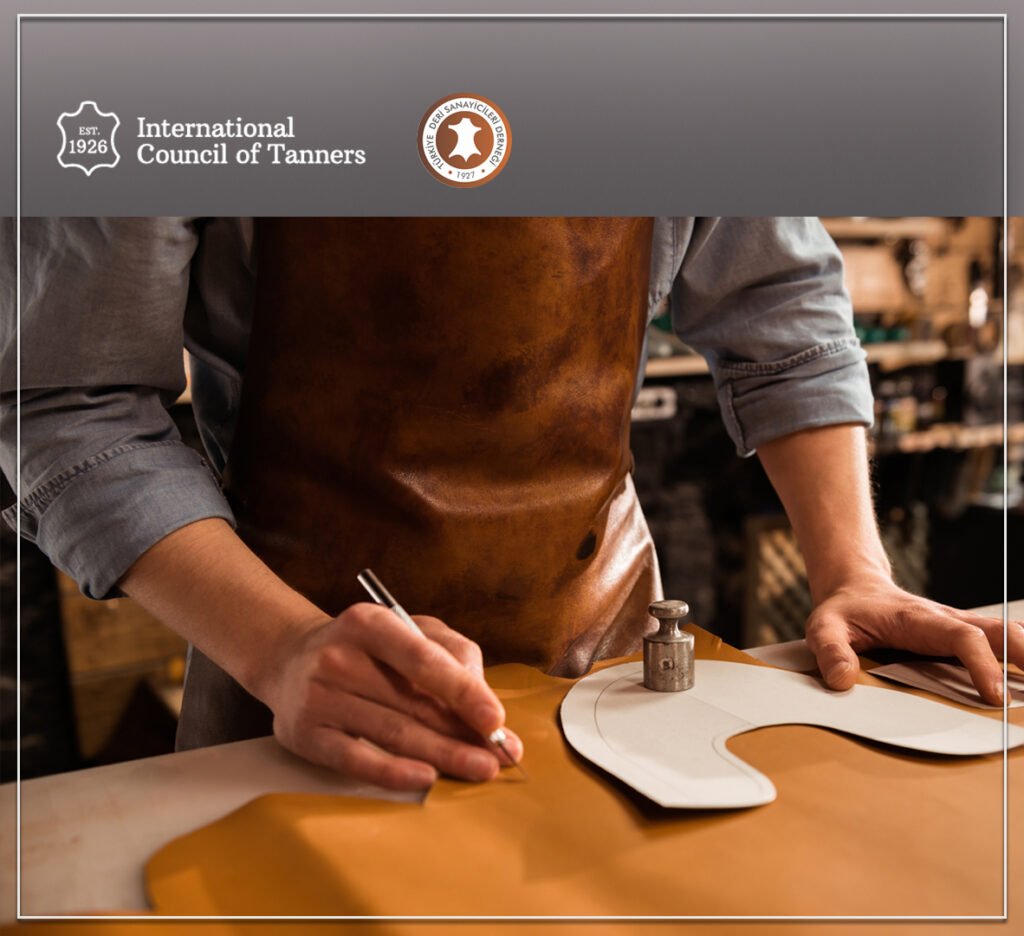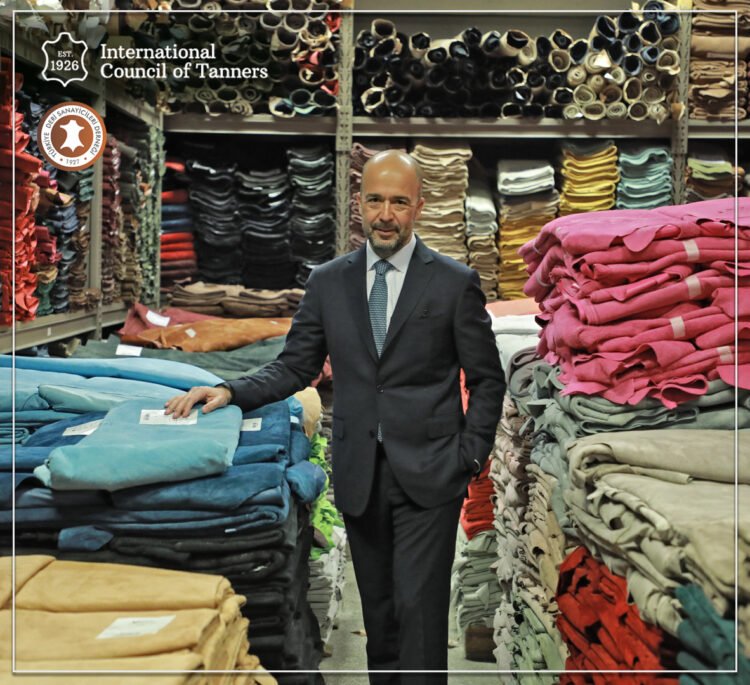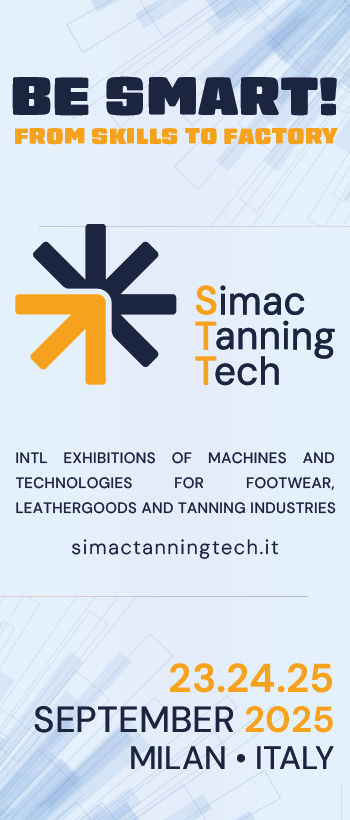“The depreciation in global leather markets actually stems from the failure to fully utilize raw materials. As long as humanity continues to consume food, proper evaluation of leather should be seen as a responsibility for both the environment and the circular economy.”
“As ICT, we aim to increase the traceability and quality perception of leather products by promoting certification processes in line with international standards.”
Mr. Bekir Burak UYGUNER, first, we would like to get to know you.
I was born in Istanbul in 1971. I represent the third generation of a family of leather industrialists. After completing my primary and secondary education at Istanbul Erkek Lisesi, I completed my higher education at the American College of Switzerland.
I am the Chairman of the Board of Uyguner Leather, which has been operating since 1935. With our Uyguner Leather brand, which exports finished leather to more than 30 countries, we established Gelner Gıda in Turkey to produce gelatin and collagen from bovine hides. I also serve as Chairman of the Board of Gelner Gıda.
Additionally, I am actively involved in NGOs. I serve as the Chairman of the Board of the Turkish Leather Industrialists’ Association (TDSD), founded in 1927, and since March 2023, I have been serving as President of the International Council of Tanners (ICT).
Can you tell us a bit about UYGUNER LEATHER?
Founded in 1935, Uyguner Leather Industry and Trade Inc. continued its operations in Kazlıçeşme, Istanbul until the end of 1992. In 1993, Uyguner moved to the Tuzla Organized Leather Industry Zone and continues to operate by producing leather for upper shoes, garments, upholstery, and leather goods.
Closely following global fashion and technological developments and aiming to deliver quality products to its customers on time, Uyguner established a marketing company in 2006 based in Güngören. Uyguner Leather Marketing offers quality leather to its customers through four stores in Istanbul and additional outlets in İzmir, Konya, Gaziantep, and Moscow.
The company exports leather in fields such as garment, upholstery, footwear, and bag-making. Uyguner Leather exports from its factory in Bursa—especially upholstery leather—to over 30 countries. Upholstery leather products are exported as finished leather with high added value, averaging USD 8-10 million annually, mainly to Europe, but also to the Far East, Central Asia, India, and China.
With 90 years of experience in leather production, Uyguner aims to be a national and international leader in the leather sector and continues to invest in R&D to contribute to the national economy and provide excellent service to its customers. Uyguner Leather established Gelner Gıda in Balıkesir to realize Turkey’s first halal powdered and sheet gelatin and collagen production.
First of all, congratulations on your re-election as President of the International Council of Tanners (ICT). What would you like to say about that?
Thank you. In the current era, our industry is increasingly facing issues such as sustainable production, transparent supply chains, and environmental responsibility. I am pleased to be part of this transformation with ICT and to contribute to making the global leather industry stronger, more innovative, and more environmentally friendly.
In the upcoming period, we will persistently work to strengthen the international representation of our industry, attract younger generations to the sector, and elevate global sustainability standards in leather production.
How can we re-emphasize the historical importance of leather, which is tied to the early domestication of grain and the spread of animal husbandry? After all, this valuable craft emerges from meat consumption—part of humanity’s primary food chain.
The domestication of grain and the spread of animal husbandry represent some of the most fundamental transformations in human history. This transition not only shaped dietary habits but also the shift to settled life, social structures, and economic understanding. Leatherworking emerged almost simultaneously with humanity itself.
Leather is a natural by-product of meat production, which began with hunting and later became systematic with animal husbandry. Our ancestors responsibly utilized every part of nature—leather was used for clothing, shelter, and transportation, thus establishing a sustainable relationship with the environment.
Today, processing leather as a by-product of livestock farming remains a craft performed with human skill and mastery. It is both a cultural heritage and a component of the circular economy. Therefore, leatherworking should not only be viewed as an industrial branch but as a continuation of an eco-conscious and ancient human practice.
Valuing leather means supporting the transformation of waste into valuable products, honoring labor, tradition, and sustainability. As long as humanity consumes meat, proper utilization of leather must be considered an environmental and circular responsibility.
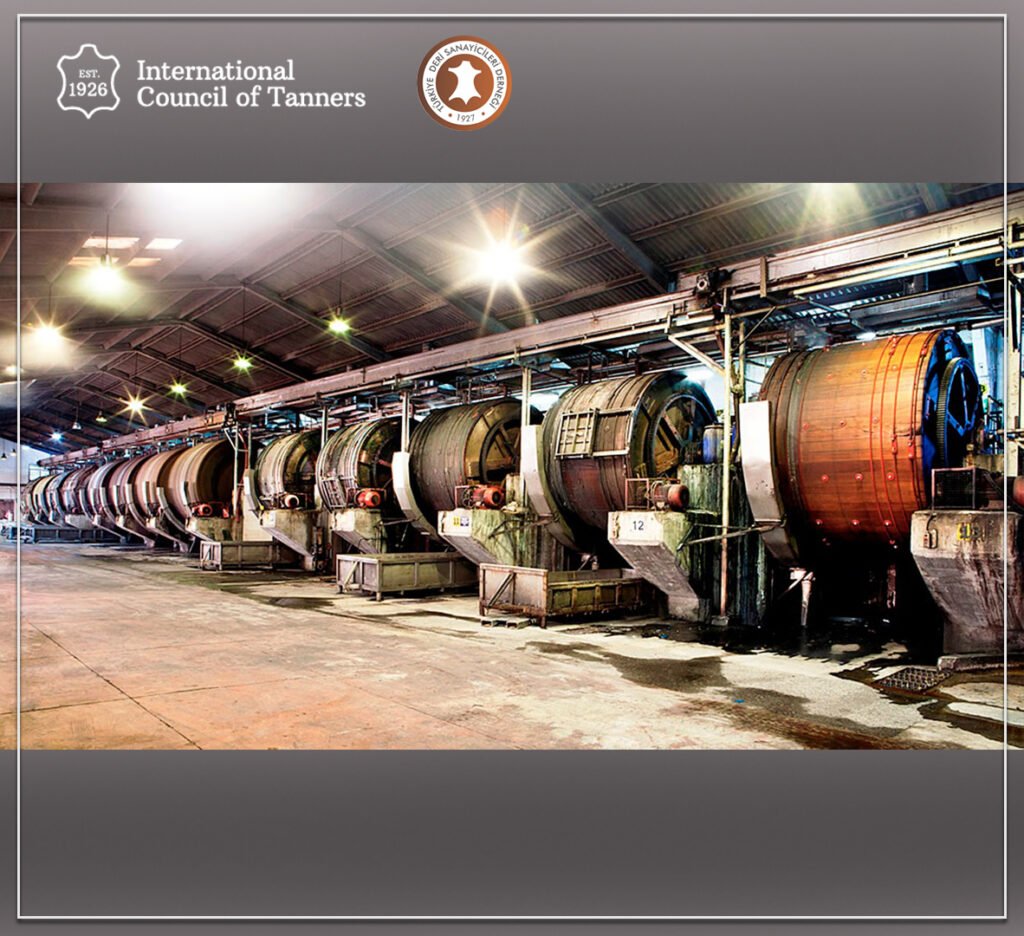
There is a contrary opinion in the global leather industry that says, “animals are killed for their leather.” Is this argument valid? And in recent years, there have been pressures concerning animal welfare and sustainability. Since leather is already a sustainable material, could you tell us about your global initiative to license the use of the word “LEATHER”?
Unfortunately, there is an unfounded and incorrect perception that “animals are killed just for their leather.” We constantly stress that this is not true. The leather industry processes raw hides, which are a natural by-product of the meat and dairy industry. In other words, leather is the transformation of a waste product into something valuable. If we do not utilize these hides, millions of tons of biological waste would be discarded each year, becoming an environmental burden.
From this perspective, leather is the most suitable raw material for a circular economy—eco-friendly and sustainable. Technologies now minimize water consumption, chemical footprints, and carbon emissions during leather production.
Furthermore, we see growing societal concern over animal welfare and sustainability not as a threat, but as an opportunity to raise production standards even higher. We closely follow these developments and promote manufacturing in line with international norms.
With this understanding, we initiated a global campaign to license the use of the term “LEATHER” to ensure accurate representation worldwide. Our goal is that only businesses practicing quality and responsible production may use the word “LEATHER.” This ensures consumers are properly informed and the reputation of our industry is protected.
Through this global licensing system, we want to give consumers the confidence: “This is genuine leather and was produced under sustainable conditions.” We aim to establish a transparent link between responsible producers and conscious consumers.
Do you have any initiatives to prevent the loss of value in global leather markets? (For example, transforming waste from the meat industry into value-added products, such as a global raw hide exchange, or certification initiatives?)
The depreciation in global leather markets actually stems from the failure to fully utilize raw hides. Yet leather, as a by-product of the meat industry, can be transformed into high value-added products when managed properly. To unlock this potential, we carry out sustainability-focused projects. In fact, as Uyguner Leather, we established Gelner Gıda.
Under Gelner Inc., we have the brands Jelyap and GNR. Through the Jelyap brand, we conduct R&D and production of edible food gelatin, pharmaceutical bovine gelatin, powdered and sheet gelatin, and various other biotech products.
Under the GNR brand, we also produce high-quality Collagen Peptide food supplements—an innovative product for “Supporting Quality Life.” All our products are produced under halal conditions. Using 100% bovine hides, we continue to develop new protein-based products and improve existing ones.
Through Gelner, we contribute to Turkey’s economy with a diverse product range, production capacity, and product quality in sectors such as medicine, pharmacy, cosmetics, and food. By deriving collagen from leather, we both add value to sectors like health and cosmetics and reduce environmental impact by transforming industrial waste into a valuable product.
As ICT, we also aim to expand certification processes in accordance with international standards to enhance traceability and quality perception of leather products.
The Turkish leather industry has a long history. With the decreasing number of tanneries in Turkish organized industrial zones (OIZs), could this trigger innovation? Also, are there any initiatives to prevent raw hides from being undervalued during Eid al-Adha? What are your thoughts on the future of Turkey’s leather industry?
Our country has a deep-rooted tradition of processing leather for thousands of years. While the decline in the number of tanneries in OIZs may seem like a regression at first glance, this shift actually opens the door to innovation and technological transformation. We must now move forward with more environmentally friendly, digitalized, and high value-added production models. Our goal is to preserve traditional practices while making them suitable for the future.
The undervaluation of raw hides during periods like Eid al-Adha causes significant economic and environmental loss. That’s why we conduct various awareness-raising and guidance efforts to ensure proper collection, processing, and integration of raw hides into the economy. We aim to strengthen the connection between the industry and society, because these hides are not waste—they are the starting point of a value chain.
Despite the destructive competition from fossil-based materials labeled “synthetic” or “vegan,” and despite the regulatory pressures under the EU Green Deal and growing sustainability demands, we are not pessimistic about the future of the Turkish leather industry. This period seems to be a time of mindset transformation globally, including in Turkey. As with every significant change, it will likely result in either new ventures or the exit of existing players—which, in the Turkish leather sector, has historically led to a decrease in the number of businesses. Yet production volume hasn’t declined—in fact, it has increased. The businesses that remained in the market quickly adapted to new developments and continued production. A similar transition seems to be underway today.
Thanks to technological advancements and sustainable production methods, I believe our industry will become even stronger. In terms of production and employment, the leather industry holds significant importance in our country and provides employment to many people. However, I believe we must adopt more innovative approaches and produce higher value-added products. This way, we can become more competitive both in the domestic and international markets.
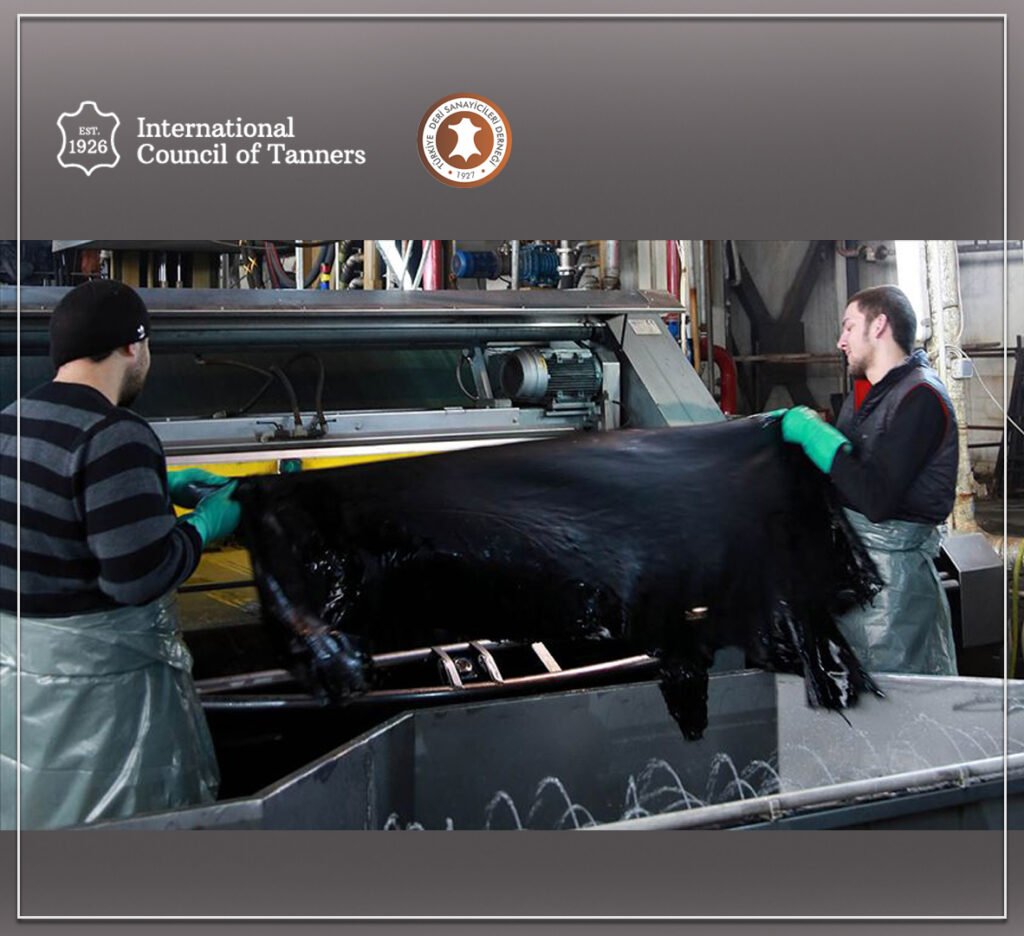
What are ICT’s activities regarding environmental and occupational safety issues related to leather industry waste in Turkey and globally? Are these wastes being recycled?
As ICT, ensuring the leather industry evolves into a more environmentally friendly structure is a top priority for us. Today, leather waste should not be seen merely as a burden to be disposed of, but rather as a resource that can be transformed into economic value through proper technology and governance.
With this understanding, under ICT we organize global initiatives, partnerships, and training to elevate environmental and occupational safety standards.
In Turkey, we carry out field-specific projects in close collaboration with the sector. We support initiatives to modernize wastewater treatment facilities in OIZs, separate solid waste, and promote reuse. We are also working on converting tannery waste into compost, fertilizer, or energy using biotechnology.
Moreover, we highly prioritize the recovery of valuable by-products such as collagen from leather production. Through Gelner Gıda, which we established as Uyguner Leather, we focus on this area by producing collagen from leather waste—both embracing an eco-friendly approach and supplying these by-products to industries like health, cosmetics, and food.
Do you have collaborations with universities or any activities targeting international leather sector professionals (such as skilled workforce development)?
The sustainable growth of the leather industry is only possible with a qualified human resource. With this awareness, ICT maintains ongoing contact with international universities, vocational training institutions, and research centers. We engage in educational collaborations to transfer knowledge on both basic leather technologies and sustainable production processes to younger generations.
In Turkey, we also develop projects with both universities and vocational colleges. Additionally, we promote industry knowledge-sharing through student exchange programs and joint research projects with European leather technology institutes.
Ensuring that trained professionals remain in the sector requires not only education but also social projects and employment policies that strengthen their sense of belonging to the industry. Furthermore, we are working on developing modular educational content tailored to the current needs of the sector, encouraging young people to shape their careers in this field.
Lastly, what would you like to say to those devoted to this profession?
Leather is a craft as old as human history. Everyone devoted to this profession is not just involved in a production process, but also serves a culture that spans thousands of years. Every piece of leather shaped with labor, patience, and mastery carries immense knowledge and dedication.
Today, our responsibility is to carry this legacy into the future in both a sustainable and innovative way. Technology may change, marketing language may evolve, but the spirit of this profession—respect for labor, environmental awareness, and commitment to quality—will always remain the same.
The true driving forces of this sector are those who work with passion. On this occasion, I would like to thank all the producers in the sector who continue their work without losing that passion.
